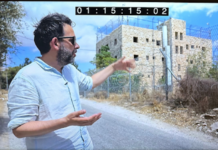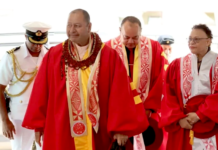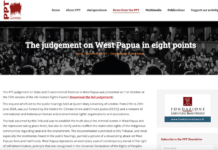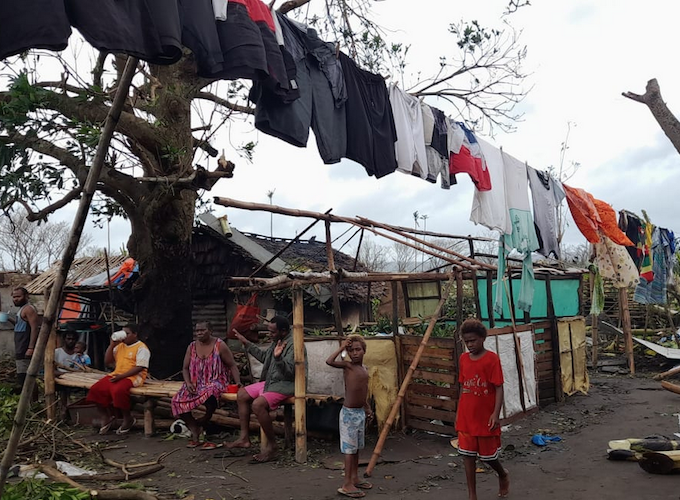
By Lydia Lewis, RNZ Pacific journalist
People in Vanuatu remain optimistic about their future after two destructive cyclones in two days left parts of the Pacific nation in ruins.
Authorities are yet to determine the full scale of the damage caused by the back-to-back severe tropical cyclones Judy and Kevin.
But those who had to endure the worst of the natural disasters last week believe demonstrating resilience is their only option.
- LISTEN TO RNZ MORNING REPORT: Lydia Lewis reporting
- READ MORE: Tropical Cyclone Kevin lashes Port Vila with destructive winds and heavy rain
- Vanuatu residents ‘exhausted’ after two wild cyclones in three days
- PM Kalsakau in cyclone-ravaged Vanuatu declares emergency as new storm bears down
- Other Vanuatu storm reports
“To have had two category four cyclones in less than a week is history in itself,” Vanuatu’s only female Member of Parliament, Gloria Julia King, told RNZ Pacific.
“[It’s] something that even the elders in our families haven’t seen before.”
She said her island nation has had its fair share of severe weather events, highlighting the destruction caused by Cyclone Pam in 2015 from which the country has still not fully recovered.
“A lot of our schools are still in makeshift classrooms, [children] still sitting on the floor without desks and chairs.”
Hopeful over challenges
But she is hopeful that the ni-Vanuatu people will get through the challenges in front of them.
“I have seen Vanuatu come back from Pam, I’ve seen Vanuatu come back from Harold, and I am positive Vanuatu will be able to bounce back from Kevin,” King said.
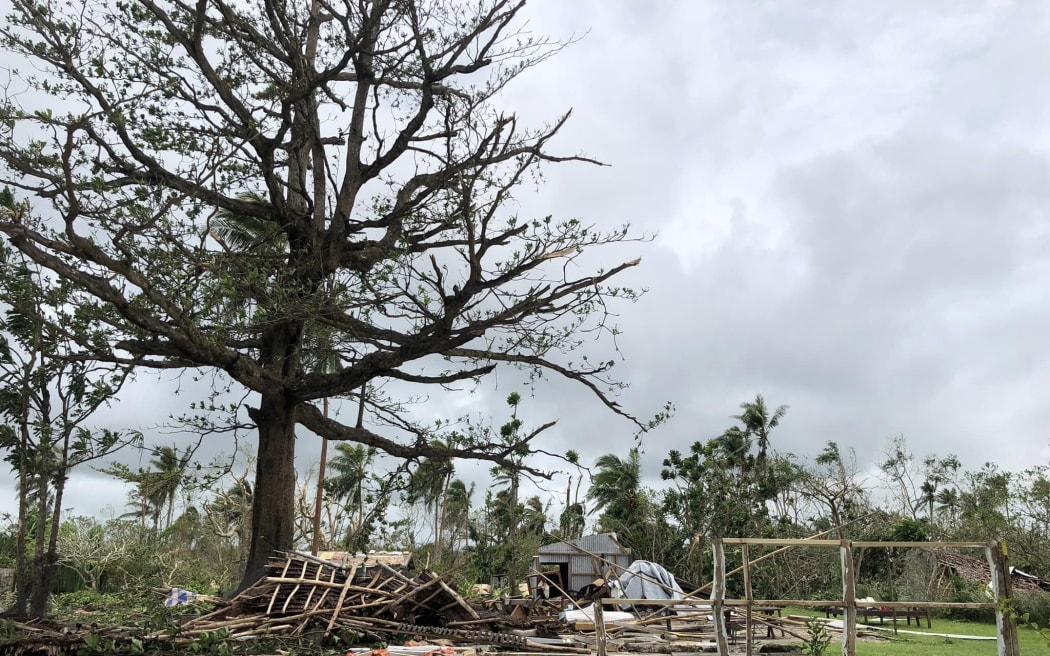
The country was hit by a category 4 TC Judy first on March 3, but just as people started to pick up the pieces, they had to rush to evacuation centres the following day as Kevin arrived as a category 3, intensifying to a category 4 and then reaching 5 over open water.
“People [were] carrying people with disabilities on their back to an evacuation building,” Greenpeace Australia Pacific’s advisor Shiva Gounden, who is in the capital Port Vila, said.
He said three to four families huddled in homes while properties around them were being wiped out.
“Roads are completely blocked or flooded. There’s no access for anyone to leave the village for any type of emergencies.”
‘No power, no water’
“There’s no power. There’s no water,” he added.
Gounden was in a village on Efate island helping people prepare for TC Kevin when it hit with a force much more violent than anyone was prepared for, he told RNZ Pacific.
He had to hold the doors of the house he was residing in for almost 10 hours in shin high water to remain safe.
“It was extremely strong,” he said, describing Kevin’s ferocity.
“I’ve seen and responded to several cyclones in my life and I felt Kevin was as strong as Cyclone Winston which wiped out Fiji.”
“I was trying to hold my door from 5pm till about 3am. I was using all my [strength] with my hands and my back and my legs to try and hold the door because if I didn’t, it would snap. There was water everywhere,” he said.
‘It’s a tough go for many’, says Vanuatu journalist
Vanuatu journalist Dan McGarry, who has been on the frontlines documenting the disaster, visited vulnerable communities in the aftermath.
Taila Moses and her son Tom stand in front of what was once their home of 16 years. Countless houses in informal communities such as hers were damaged or destroyed. Cyclones dole put their damage indiscriminately, but society’s most vulnerable feel it more than anyone else. pic.twitter.com/cXBDuznMTz
— Dan McGarry (@dailypostdan) March 5, 2023
He said people were living in “impromptu housing” in various parts of Port Vila.
“What I found was quite disturbing,” he said.
“It’s becoming obvious that the increasing reliance on a cash economy is creating inequalities in terms of people’s ability to cope with this kind of disaster cycle.”
McGarry said informal settlements up on the hillside in the capital were covered with clothing lines because everything had been soaked.
“There were tarpaulins pulled across roofs to provide some sort of temporary shelter.”
He has spoken with several residents and shared the story of one woman who has lost everything.
“She has no livelihood at the moment because her employer, of course, isn’t calling her into work,” he said.
“She’s lost everything and she is without the means to return it. It’s a tough, tough go for a great many people here in Port Vila,” he explained.
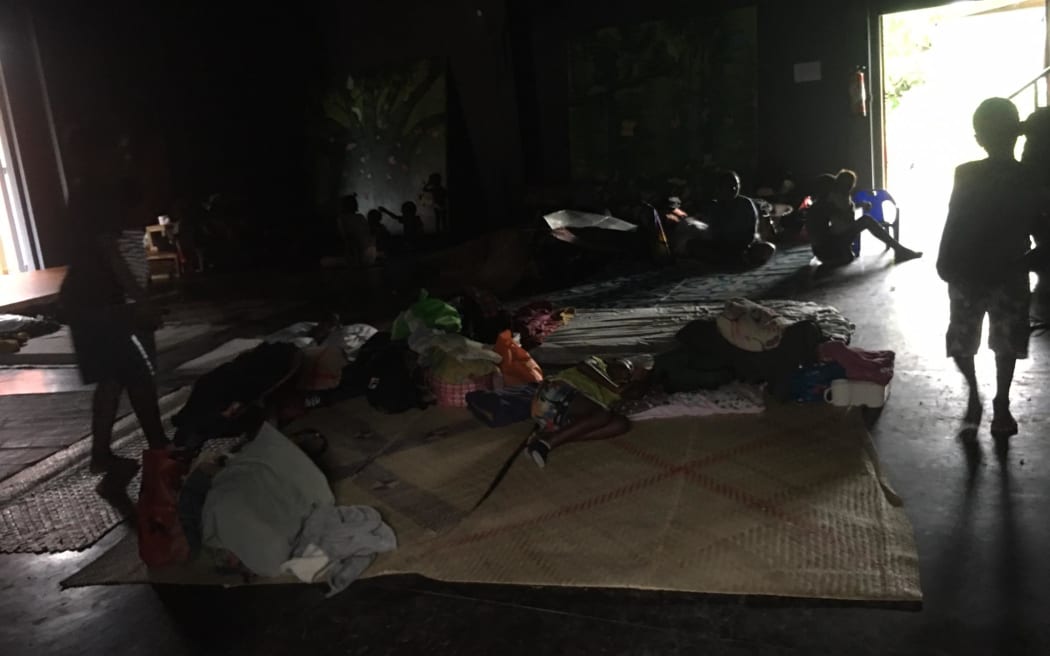
Climate crisis issue
Climate crisis is front of mind for Ni-Vanuatu residents as they start to rebuild.
“[Climate change] turns what used to be sort of periodical issues for Pacific island nations into chronic ones,” he said.
“In this case, we’ve had two severe cyclones in the course of a week an as New Zealanders have seen these weather systems are moving further south.”
He believes development partners of the Pacific cannot afford to walk away; a sentiment echoed by Gounden.
“We have the most resilient people, but there is a deep hurt that is within us,” Gounden said.
He said the “the hurt” stems from fossil fuels being burned across the world which exacerbates climate change.
“The people of the Pacific contribute the least to climate change, yet we face the greatest consequences of it all.”
“The biggest thing we can do is pressure world leaders right now to phase out [the use of fossil fuels.”
Meanwhile, Australia, France and New Zealand have been the first to send support to assist with emergency response.
“We will appreciate any help we can get,” King said.
“The biggest challenge now is just getting power and water back into full circuit around the country.”
Taking off for Vanuatu with assistance following TC Judy & TC Kevin. Australia has a rapid assessment team in Vanuatu & is delivering shelters & other items for communities.
We stand with the Pacific family #YugetaYumiStrong pic.twitter.com/IGYVrchew9
— Pat Conroy MP (@PatConroy1) March 5, 2023






